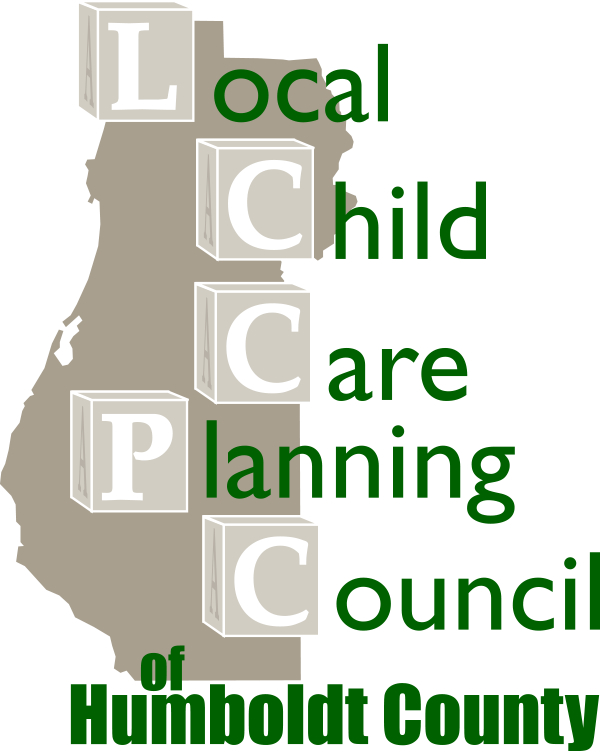
Quality Childcare Defined
The Local Child Care Planning Council of Humboldt County provides this local definition of quality child care in order to clarify our community vision that all child care enhances the physical, social, emotional and cognitive development of children. Our definition includes four aspects of quality child care: the child’s experience, educators, communication and the setting. Not all quality child care looks alike but quality child care achieves excellence in the four aspects listed above. For the purposes of this definition we have chosen to use the word “educator” to refer to all those who work in child care and development settings. Everyone who comes in contact with young children on a regular basis in every kind of child care setting is an educator. Titles commonly used to refer to educators include: teacher, provider, caregiver, staff aide, monitor, nannies, babysitter, recreation leader etc. Quality is achieved by educators who are deeply committed to the enhancement of children’s overall development.
Child’s experience:
Quality child care creates an atmosphere in which each child and family experiences acceptance, respect, and nurturing. Children should feel comfortable approaching the educators. Children of every age have access to materials and opportunities to inquire and explore that are mind engaging and appropriate for each child’s level of development. Because children of the same age may have different levels of social, emotional, physical, or intellectual development, activities and materials will reflect the varied needs of these children. Activities and projects grow out of children’s experiences and interests. Children’s natural desire to explore is facilitated and supported by educators based on their observations of the children. The time in care includes plenty of time for uninterrupted play and opportunities for children to do things for themselves.
Educators:
In quality child care you will find educators that are trained, experienced and educated in child development. Research shows that children develop trusting relationships when their needs are met by the same educators each day throughout their child care experience. A quality child care experience can, however, include well-planned transitions from one program to another, as children’s and families’ needs change.
Educators are nurtured and encouraged to develop professionally by their employers (which may include parents). They make an ongoing commitment to education and training, including attending workshops, conferences, enrolling in courses and other professional growth opportunities. A deep caring for children is demonstrated. They are relaxed, attentive, warm and responsive to the needs of children, parents and other adults. Ideally, educators reflect the cultures of the children enrolled and are culturally sensitive.
Communication:
Clear and direct communication between educators and children, parents, and other adults are components of quality child care. This communication is built on mutual trust and respect. A variety of opportunities are available for parents and educators to share information about the child with each other. This sharing of information enables educators to learn about each child’s family and home culture and helps parents integrate knowledge of child development at home. Whenever possible, communication with families occurs in their home language. If that is not possible, the families’ home culture and communication style is respected.
Educators clearly explain the philosophy, teaching style and the reasons behind curriculum activities. Parents and educators in partnership recognize the knowledge and experience that each brings to the relationship. Parents are encouraged and supported to be involved in meaningful ways, including the evaluation of the child care experience. Educators in quality child care respect and acknowledge parents’ dreams for their children.
Setting:
The child care setting, by itself, does not determine quality, however, it is one aspect of a quality child care. An environment that is inviting to children, families and educators is airy, light, pleasant and comfortable. Quality child care promotes the health and ensures the safety of children in care. A welcoming child care integrates the cultures of the children being served in meaningful ways throughout the environment. An adequate amount of space for both indoor and outdoor play is provided. Space, equipment, and materials accommodate the varied developmental needs of each child. Materials that support children’s emerging independence and initiative are easily accessible for children to choose. In a quality child care there are enough adults to ensure that each child’s individual social, emotional, physical and intellectual needs are met.
In closing we wish to emphasize that quality can be found in a variety of child care and development settings. Quality is achieved by educators who are deeply committed to the enhancement of children’s physical, social, emotional and cognitive development.
